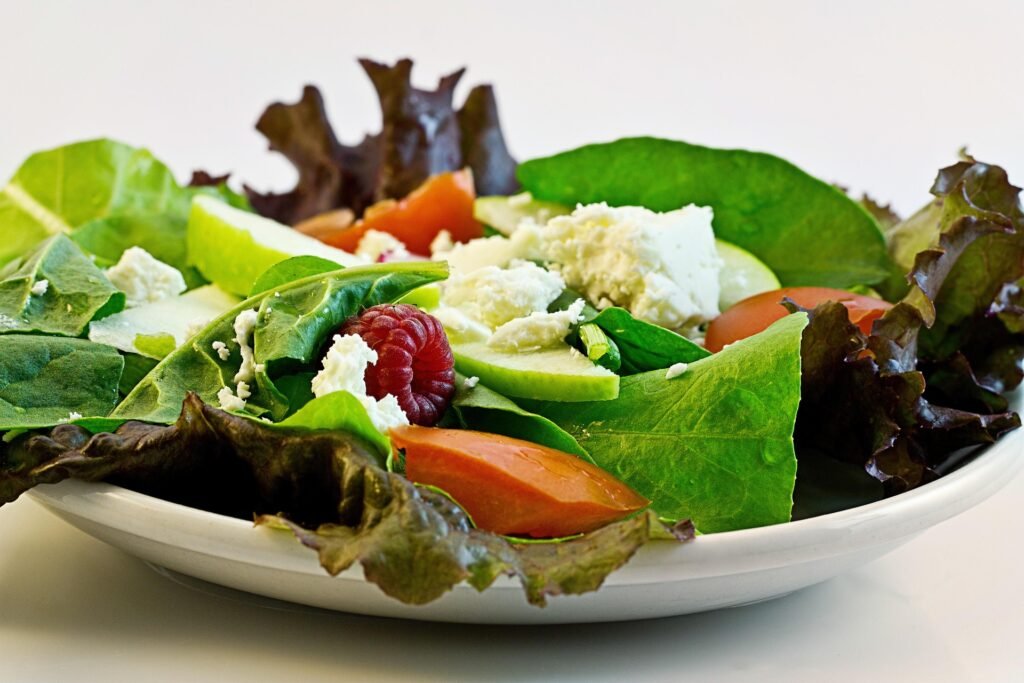
Healthy Eating Habits for Staying Healthy
Food: One of the Main Essentials for Survival
Food is one of the key means of survival. It is a highly important component for the human body. Food is like the oil of the human body—it keeps the body functioning. Therefore, it is crucial for us to be conscious of what we eat.
We need to understand and be aware of which foods are beneficial to the human body, which foods were created by the Creator to keep our bodies functioning, and which foods are harmful to our health.
We must remember that the most important part of the formula for good health is maintaining healthy eating habits.
Let’s look at what healthy eating habits might look like in daily life:
Include Organic Foods in Your Preferred List:
Organic foods are food products grown without chemical fertilizers, pesticides, or artificial additives. These are extremely important for the human body. It’s important to remember that the Creator made humans and placed their food within nature.
A look into human history shows that when humans first began living on Earth, they sustained themselves entirely with natural foods. Therefore, everything the human body needs already exists within natural foods.
Over time, the availability of organic food has decreased. Due to the global industrial revolution, people have shifted toward processed foods. To increase crop yields, chemically enhanced farming practices have been adopted, which are destroying the nutritional value of food. As a result, people are suffering from various diseases, and new illnesses are continuously being discovered.
Nowadays, people are becoming more aware and are once again recognizing the importance of organic food and turning back to it. So, to protect health, preserve the environment, and maintain nutritional quality, we must prioritize organic foods.
Ingredients We Should Emphasize in Daily Meals:
Fats (Oils):
- Organic extra virgin olive oil
- Organic extra virgin coconut oil
- Pure ghee
- Pure butter
Protein:
- Eggs with yolk
- Fish (fatty fish, sea fish)
- Fresh mushrooms
- Fatty beef (in moderation)
- Fatty mutton (in moderation)
- Chicken (preferably free-range, not farm-raised)
Carbohydrates:
- Eat all types of leafy greens generously
- All types of vegetables are good; it’s best to cook them with organic extra virgin olive oil
- Also include salads
- Include all kinds of nuts in your diet
Beverages:
- Organic coconut vinegar with the mother / organic apple cider vinegar with the mother (mix 1 teaspoon in 1 glass of water and drink on an empty stomach; optionally, add lemon or ginger juice and 1 teaspoon of extra virgin cold-pressed coconut oil)
- Drink plenty of water. Occasionally, add a pinch of Himalayan pink salt to your water
- Drink 1 young coconut water daily
- Soak 2–3 tablespoons of chia seeds in water for at least 30 minutes before consuming
- Turmeric tea is very beneficial for the body and helps reduce inflammation
Avoid Traditional Routine of 3–6 Meals a Day:
You should eat only when your body truly needs food—i.e., when you feel hungry.
Foods That Should Be Excluded from Our Diet:
- All types of grain-based foods such as rice, wheat, corn, barley, and items made from them like roti, paratha, biscuits, snacks, noodles, pasta, oats, bread, cake, and all kinds of traditional sweets and pastries should be reduced or completely removed from the regular diet
- Sugar and all types of soft drinks, diet drinks, juices, and other beverages pose a serious health threat
- Direct milk, sweet yogurt, sour yogurt, pudding, and all kinds of sweets
- Soybean, sunflower, corn, rice bran, and other vegetable oils
- All types of fast food and processed foods (ready-made market foods)
- Avoid the habit of frequent snacking or eating without real hunger
If we prioritize these ingredients when planning our daily meals, staying healthy naturally will become much easier for us.
Research-Based Summary Evidence:
-
Organic Food and Health:
A review published in Environmental Health (2017) concluded that organic foods contain lower levels of pesticide residues and may offer modest nutritional benefits over conventional foods, potentially reducing the risk of chronic diseases related to pesticide exposure.
-
Processed Foods and Chronic Disease:
A large cohort study published in The BMJ (2019) found a significant association between high consumption of ultra-processed foods and increased risk of cardiovascular disease, obesity, and early death. These foods often contain added sugars, unhealthy fats, and artificial additives.
-
Healthy Fats (e.g., Olive Oil, Ghee):
The PREDIMED trial (New England Journal of Medicine, 2013) showed that a Mediterranean diet rich in extra virgin olive oil or nuts significantly reduced the risk of heart disease among high-risk individuals.
-
Protein Sources (Fish, Eggs, Lean Meats):
According to the American Journal of Clinical Nutrition (2015), consumption of lean proteins such as fish and eggs supports muscle maintenance, metabolic function, and cardiovascular health.
-
Importance of Vegetables and Nuts:
A meta-analysis in The Lancet (2017) confirmed that high intake of vegetables and nuts is associated with reduced risk of coronary heart disease, stroke, and premature death.
-
Meal Frequency and Intermittent Fasting:
Research published in Cell Metabolism (2018) supports time-restricted eating (a form of intermittent fasting), showing improved metabolic health, insulin sensitivity, and weight management compared to traditional frequent meal patterns.
-
Sugar and Refined Carbohydrates:
A study in JAMA Internal Medicine (2014) found that high sugar intake is associated with an increased risk of cardiovascular mortality. Reducing added sugars can lower the risk of metabolic syndrome and type 2 diabetes.
-
Hydration and Natural Beverages:
Adequate water intake is essential for cellular function, digestion, and detoxification. A review in Nutrition Reviews (2010) emphasizes that hydration improves energy levels, cognitive performance, and overall physical health.
-
Chia Seeds and Fiber:
Chia seeds are a rich source of omega-3 fatty acids and fiber. A study in the European Journal of Clinical Nutrition (2010) suggests chia consumption may reduce inflammation, blood pressure, and cholesterol.
-
Inflammatory Reduction (Turmeric):
Curcumin, the active compound in turmeric, has anti-inflammatory and antioxidant properties. A systematic review in Phytotherapy Research (2016) supports its potential role in managing arthritis, metabolic syndrome, and anxiety.
